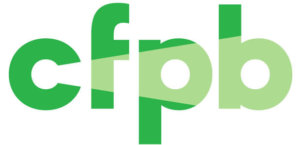May 3: Recent CFPB Activities
CFPB Highlights the Hidden Costs of Health Savings Accounts
CFPB Publishes Research Finding Higher Price Complexity Leads Consumers to Pay More
The Consumer Financial Protection Bureau (CFPB) issued a new report that suggests consumers tend to pay more for products that have more complex pricing structures. The report is based on experiments with multiple rounds of buyers and sellers interacting in simple markets, and found that participants tended to pay more when prices were broken into sub-parts and were harder to understand. The research has implications for understanding how junk fees impede fair and competitive pricing in markets like auto loans or mortgages, where consumers have to evaluate extended warranties, add-ons, closing costs, and a wide variety of other fees instead of an all-inclusive price.
CFPB researchers had study participants act as buyers and sellers in a series of transactions. In some cases the objects for sale had a single all-in price, while in other cases the prices were split into 8 or 16 sub-prices. In the scenarios with more complex pricing, buyers tended to fare worse. The average selling prices rose, buyers had more difficulty comparing prices across sellers, and the overall amount paid rose. These findings contribute to a growing consensus of research and real-world observations showing that junk fees increase overall prices beyond what a fair and competitive market would allow. Read more
CFPB Finds 15 Million Americans Have Medical Bills on Their Credit Reports
CFPB Takes Action to Stop Illegal Junk Fees in Mortgage Servicing
The Consumer Financial Protection Bureau (CFPB) today published an edition of Supervisory Highlights describing the agency’s actions to combat junk fees charged by mortgage servicers, as well as other illegal practices. CFPB examinations found servicers charging illegal junk fees, such as prohibited property inspection fees; sending deceptive notices to homeowners; and violating loss mitigation rules that help struggling borrowers stay in their homes. In response to the CFPB’s findings, financial institutions refunded junk fees to borrowers and stopped their illegal practices.
The mortgage servicing examination work announced today builds on prior CFPB exam work combatting junk fees in the mortgage servicing and other consumer financial markets. In October of last year, the CFPB announced that its examination work from February to August of 2023 resulted in $140 million refunded to consumers for unlawful junk fees in the areas of bank account deposits, auto loan servicing, and international money transfers. Since that time, the CFPB’s supervision junk fee work has resulted in more than $120 million in additional junk fee refunds in the area of bank account deposits. Read more
 The Consumer Finance Protection Bureau (CFPB) is responsible for consumer protection in the financial sector. CFPB’s jurisdiction includes credit unions, banks, securities firms, payday lenders, mortgage-servicing operations, foreclosure relief services, debt collectors, and other financial companies operating in the United States. NASCUS closely monitors CFPB developments and responds to requests for comments on rules impacting the credit union system.
The Consumer Finance Protection Bureau (CFPB) is responsible for consumer protection in the financial sector. CFPB’s jurisdiction includes credit unions, banks, securities firms, payday lenders, mortgage-servicing operations, foreclosure relief services, debt collectors, and other financial companies operating in the United States. NASCUS closely monitors CFPB developments and responds to requests for comments on rules impacting the credit union system.